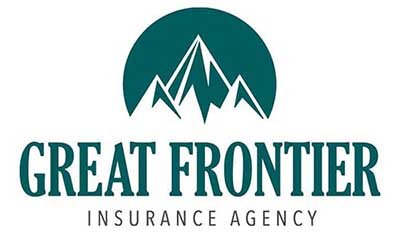Top Factors That Impact Home Insurance Rates in the Denver Metro Area
Owning a home is a cherished dream for many, but it also comes with the responsibility of protecting it against unforeseen events. Home insurance is an essential safeguard that provides financial security in the face of damages or losses. However, have you ever wondered what factors contribute to your home insurance rates in the vibrant Denver Metro Area? In this comprehensive guide, we will delve into the top factors that influence your home insurance premiums, helping you navigate the complex landscape of securing the best coverage.
Top Factors That Affect Home Insurance Rates in the Denver Metro Area
To understand the intricacies of home insurance rates in the Denver Metro Area, it's important to explore the key factors that insurers consider when determining premiums. Let's shed light on these factors and their impact on your insurance costs:
Location, Location, Location: The area where your home is located plays a pivotal role in determining insurance rates. Insurers assess various aspects such as the crime rate, proximity to fire stations, and exposure to natural disasters like hailstorms or wildfires. Areas prone to frequent incidents may experience higher premiums. Discover 5 famliy-friendly neighborhoods in the south Denver Metro area.
Construction Materials and Age: The construction materials used in your home, such as brick, wood, or concrete, can influence insurance rates. While certain materials offer better resistance against fire or other hazards, others may be more susceptible to damage. Moreover, older homes may be subject to higher rates due to potential maintenance issues.
Home Value and Replacement Cost: The value of your home and the cost of rebuilding it from scratch (replacement cost) significantly impact insurance premiums. Homes with higher values or unique architectural features might require additional coverage, leading to increased rates.
Deductible Amount: Your deductible is the amount you agree to pay out of pocket before your insurance coverage kicks in. Opting for a higher deductible can lower your premiums, but it's essential to ensure that you can comfortably afford the deductible amount in the event of a claim.
Home Security Measures: Installing security systems, such as burglar alarms, smoke detectors, or even a sprinkler system, can earn you discounts on your home insurance premiums. These measures demonstrate your commitment to safeguarding your home against potential risks.
Claims History: Your past insurance claims can impact your current premiums. If you have a history of filing multiple claims, insurers may view you as a higher risk and adjust your rates accordingly. Maintaining a claims-free record can help keep your premiums in check.
Credit Score: Insurers often consider your credit score when assessing the risk associated with providing you coverage. A higher credit score signifies financial responsibility and may result in lower insurance rates.
Policy Coverage Limits: The amount of coverage you choose impacts your insurance premiums. Higher coverage limits entail a greater financial risk for the insurer, which is reflected in increased premiums. Assess your coverage needs carefully to strike a balance between protection and affordability.
Proximity to Fire Hydrants and Stations: The proximity of your home to fire hydrants and fire stations can affect insurance rates. Homes located near readily accessible fire prevention and response infrastructure are seen as lower risks, potentially leading to lower premiums.
Discounts and Bundling: Many insurers offer discounts for bundling home and auto insurance policies or for having multiple policies with the same company. Exploring such bundling options can help you save on your overall insurance costs.
By considering these top factors, you can gain valuable insights into the factors that impact your home insurance rates in the bustling Denver Metro Area. It's important to remember that insurance premiums may vary between insurers, making it essential to compare quotes and explore different options to find the best coverage at the most competitive rates.
In conclusion, securing the right home insurance policy involves an understanding of the various factors that influence insurance rates in the Denver Metro Area. Factors such as location, construction materials, deductible amounts, and policy coverage limits all play a role in determining your premiums. By familiarizing yourself with these considerations and seeking quotes from multiple insurers, you can make informed decisions to protect your cherished abode while also keeping your financial well-being intact.
Whether you're a proud homeowner or a potential buyer in the Denver Metro Area, investing time and effort in understanding the factors impacting home insurance rates will empower you to make the best decisions for your home and your budget. Remember, a well-protected home is a happy home!
There’s no need to shop around for insurance quotes – we’ll do it for you! When insurance companies compete for your business, you save money! We compare coverage and rates automatically from over 50 top insurance companies.
Call today! 303-934-8230
Disclaimer: The information provided in this article is for informational purposes only and should not be construed as professional advice. Please contact us for personalized guidance pertaining to your specific insurance needs.

